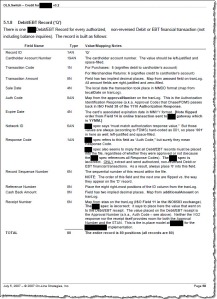Do You Take the Credit You Deserve?
I teach consultants how to write case studies. As part of that work, I ask that they describe the results of their projects. Here’s where many consultants hesitate. Why?
One group can’t talk, because they’re under non-disclosure agreements.
A second group doesn’t know the results. They do their piece, and don’t check back to see how the project as a whole progressed.
Then, there’s a third group.
The consultants in this group know the results of their work, but they don’t want to talk about them for a simple reason:
They think that to claim even partial credit for a project’s success means that they needed to be its main player. In other words, if they didn’t create the project, set its strategy, and handle its implementation, they pull back on parading their role. They feel they had to do it all.
Here’s what they’re missing, and what I’d like you to always remember:
You can be an important player on a project without having complete control over its outcome. Your contribution can still be crucial, even when you’re surrounded by a team of crucial contributors.
Talking about this idea reminds me of one consultant I worked with. For an hour I asked him to talk about the results of his projects. He hemmed and hawed. I kept pushing. Finally, when he saw I wouldn’t back down he told me something crazy:
A major technology company had hired him, because their product development team was stuck. The team’s direction had grown fuzzy. Teammates were fighting each other.
Through a few group sessions, this consultant helped the team right itself. They clarified their roles, came to agreements, set goals, and got moving again.
Months later, the team came up with a new product. I won’t name this product, but believe me, you know it. 75% of you reading this post own it. Time Magazine called it one of the three most innovative products of the year. The product has made the company billions of dollars, helped its stock price soar, and brought it wild market share .
Yet this consultant didn’t want to speak about it.
He said, “I didn’t invent, design, manufacture, or market the product. I didn’t have any direct hand in it. My client did all that.”
“Yes,” I said, “but without your contribution none of that may have happened. Or, if it did happen, it might have taken longer and cost the client a ton of money in lost sales.”
How, then, would you ethically handle such a situation? How do you take credit for your contribution, without grabbing too much of the limelight?
Here’s what I suggest: When writing about your own success stories, once you’ve explained your involvement in a project and are ready to talk about results, say the following:
“Due in part to my efforts, here’s what happened . . . “
Then, talk about revenues raised, costs cut, buzz created, and all the other results the organization enjoyed.
By using the phrase, “Due in part to my efforts” you’re letting listeners know that you’re not claiming credit for the whole initiative. You’re just rightfully taking credit for a piece of the whole. It’s a communications technique — and business philosophy — that you, your clients, and your prospects will appreciate.


